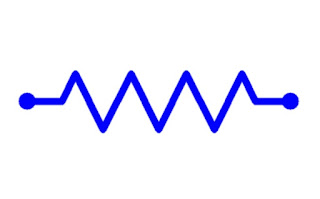Questions On Circuits
1. A conductor is a substance which has
(A) There is no free electrons.
(B) Small number of free electrons.
(C) Large number of free electrons.
(D) none of the above.
2)Why voltage is applied to the conductor ?
(A) For moving free electrons in the conductor.
(B) for producing heat in the conductor.
(C) for removing heat in the conductor.
(D) for blocking the free electrons.
3.Which of the following are the good conductors
(A) gold
(B) silver
(C) copper
(D)all the above.
4.An insulator
(A) a poor conductor of electricity.
(B) no free electrons in it.
(C) to block the flow of electrons.
(D) all the above.
5.One Ampere is equal to
(A) 1.602×10^19 electrons/second
(B) 6.242×10^-18 electrons/second
(C) 6.242×10^18 electrons/second
(D) 1.602×10^-19 electrons/second
6.An Electrical charge is equal to
(A) 6.242×10^19
(B) 1.602×10^-19
(C) 6.242×10^-19
(D) 1.602×10^19


Comments
Post a Comment